Florian Bieber’s involvement in Balkan affairs dates back for more than two decades. Originally from Luxembourg, the scholar, who specializes on Western Balkan politics, culture and history, has developed a reputation as one of the leading academic voices on the region. “I’ve been stuck with the Balkans for the last 25 years,” he says, cheerfully.
Much of that time has been spent moving between the region and the West. Between 2001 and 2006, he worked in both Belgrade and Sarajevo for the European Centre for Minority Issues, as well as teaching at the University of Sarajevo, while also authoring two books: “Nationalism in Serbia from the Death of Tito to the Fall of Milošević” and “Post-War Bosnia: Ethnic Structure, Inequality and Governance of the Public Sector.”
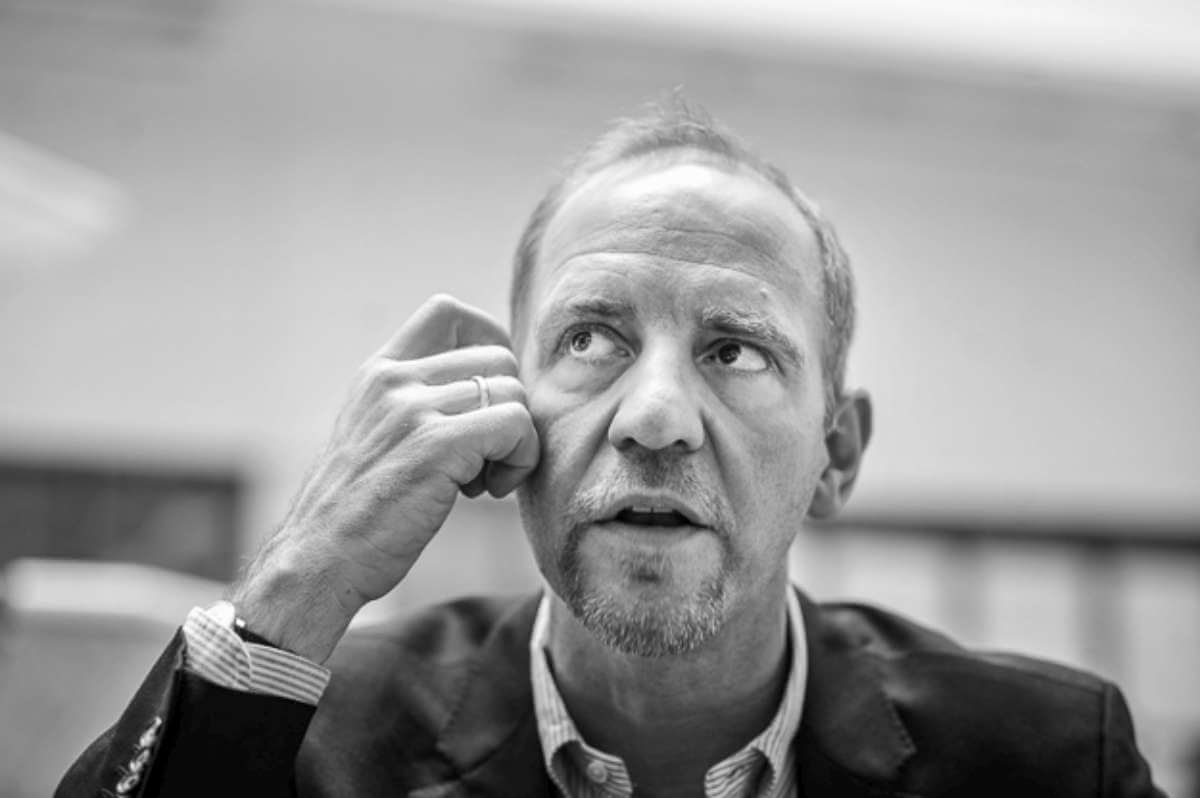
More recently he has held academic posts at prestigious institutions, including Cornell University in the U.S. and The London School of Economics (LSE) in the UK.
Today, the 44-year-old heads the Center for Southeast European Studies at the University of Graz, Austria, and is editor-in-chief of the peer reviewed journal Contemporary Southeastern Europe.
Bieber has not been afraid to criticize the international approach to the region, and has been outspoken about what he describes as the ‘autocratic’ leaders in the region. In 2015 he wrote a satirical blog for the LSE in which he set out 10 rules for a “Balkan Prince.”
“Don’t have a clear ideology, this only commits you to certain positions that can create problems later on,” he wrote. “Focus on broad goals, such as Europe, freedom, prosperity and stay clear of too specific ambitions. Now, it is in your interest to join a European or International party family, such as the Socialist International or the European People’s Party as an associate member or observer. They will give you some international legitimacy and moderate some potential international criticism. However, don’t confuse this with ideology — nobody will vote for you due to ideology, they will vote for you because of you and the job you got for their aunt.”
In addition to his academic work, Bieber is often engaged in regional conferences with policy makers. Earlier this week, he participated in the Western Balkans Digital Summit held in Skopje, where K2.0 sat down with him for a wide-ranging interview.
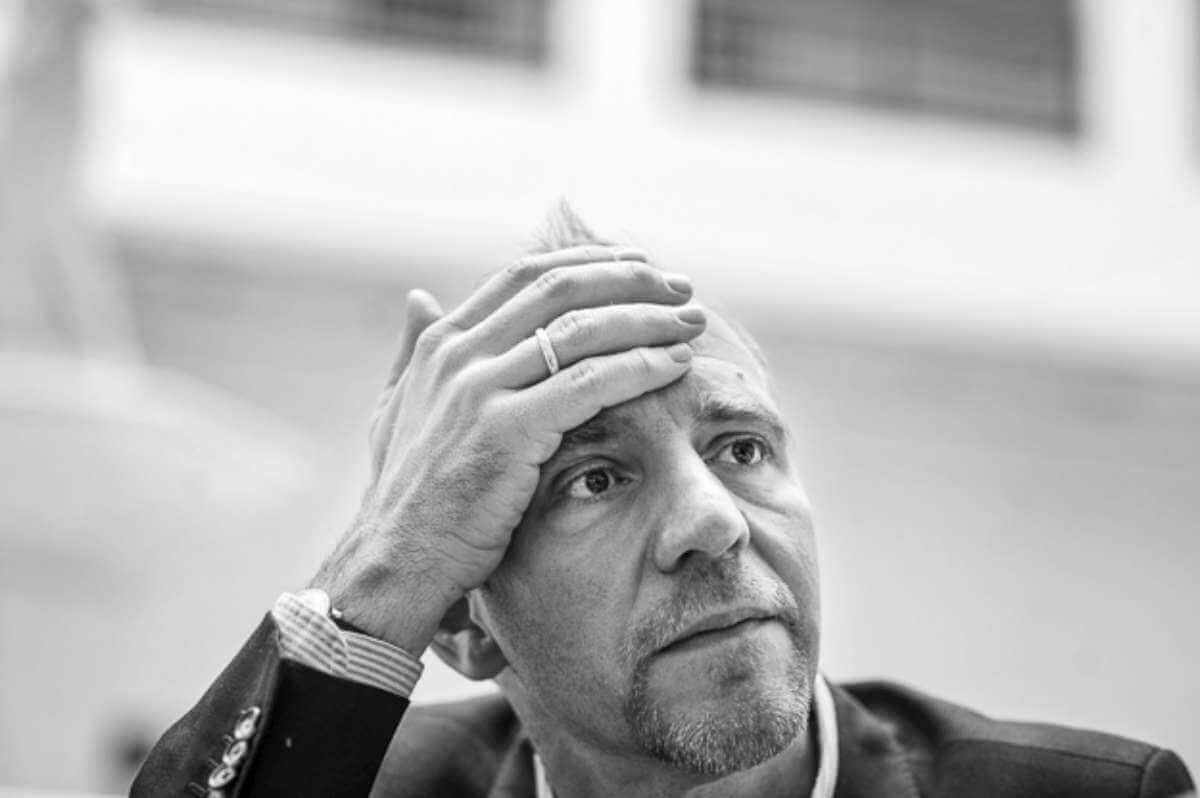
Bieber spoke of the rise of autocracies and the decline of democracy in the Western Balkans and the rest of Europe, the relationship of leaders in the region with the European Union and other external influences such as the U.S., Russia and Turkey. He also offered a perspective on the functioning of the civil state and institutions, and the need for grassroots social movements to bring about change.
Eraldin Fazliu, K2.0: We are now approaching two decades since the conflicts of the ’90s in the Western Balkans ended with the Kosovo war. However, you have continually spoken about the rise of autocracies in the Balkans in various forms. What has contributed to the rise of these ‘autocracies’?
Florian Bieber: My starting point was in the ’90s when I was researching for my PhD on “Nationalism in Serbia from the death of Tito to the fall of Milošević.” I was noticing that, yes, nationalism and wars are important, but they are a result of undemocratic policies.
I was interested in the lack of democracy in places like Serbia, which facilitated extreme nationalism and violence. Of course, many of us thought that after 2000 and the death of [Franjo] Tuđman and [Slobodan] Milošević, there would be an era when democracy could catch up in the region and it was a matter of how quick it would be. I guess, we were all a bit naïve about it.
In late 2000, I started to write with my colleague Irena Ristić from Belgrade about constrained democracies and how democracy in the region is not moving forward but stagnating.
A few years ago I wrote a blog called the “Balkan Prince,” where I was noticing criteria of how these governments rule with these autocrats, and I think this is not typically a Balkan phenomenon. Maybe Hungary or Poland is worse when it comes to the state of democracy.
Maybe Hungary or Poland is worse when it comes to the state of democracy.
Within the Western Balkan states, do you see a difference between them in this regard?
It’s hard to give a ranking, some are very entrenched, like Montenegro, but others are maybe more repressive. Maybe Serbia. But, there are structural reasons, the weakness of institutions, and people or personalities who come to power and who display authoritarian behavior and use the weakness of institutions.
In an article for Foreign Affairs, following the launch of the EU’s latest enlargement strategy earlier this year, you wrote: “The new EU strategy rightly recognizes that the problems the Balkans face are rooted in the way the region is governed and in its general democratic decline: state capture, serious political interference in the media, and a number of bilateral disputes stemming from the legacies of the wars in the 1990s.” How much responsibility do you think the European Union has for tolerating the rise of these ‘autocracies’?
The EU is not the cause of it, but I think, when you look back 15 years ago, people in the Thessaloniki Summit [in 2003, at which the European perspective of the Western Balkan states was set out] thought that EU integration would come very quickly. If you were to have told the people back then that 15 years later only one country [Croatia] would have joined the EU, and the others could join in nearly 25 years after the Summit, people would say, ‘That’s not a success, its a failure!’
I think that there is a distance of EU prospects, a kind of very technocratic approach, and the EU seems not really that interested, at least in the last 10 years.
What about the toleration of ‘autocrats’ by the EU?
I think it’s not only tolerating them but it’s been encouraging them in some cases.
I think the EU as an institution has been more critical than some member states. We have lots of examples where member states were pragmatically working with autocrats or autocratic regimes. Like Macedonia, where the previous government was supported, in a way, by the then Austrian Foreign Minister Sebastian Kurz. He came to an election rally in Skopje [in 2016] to lobby for the ruling party when it was clear that it was deeply corrupt and undemocratic. And that was only because the governments in the Balkans closed the [migration] routes. It was only for geostrategic reasons.
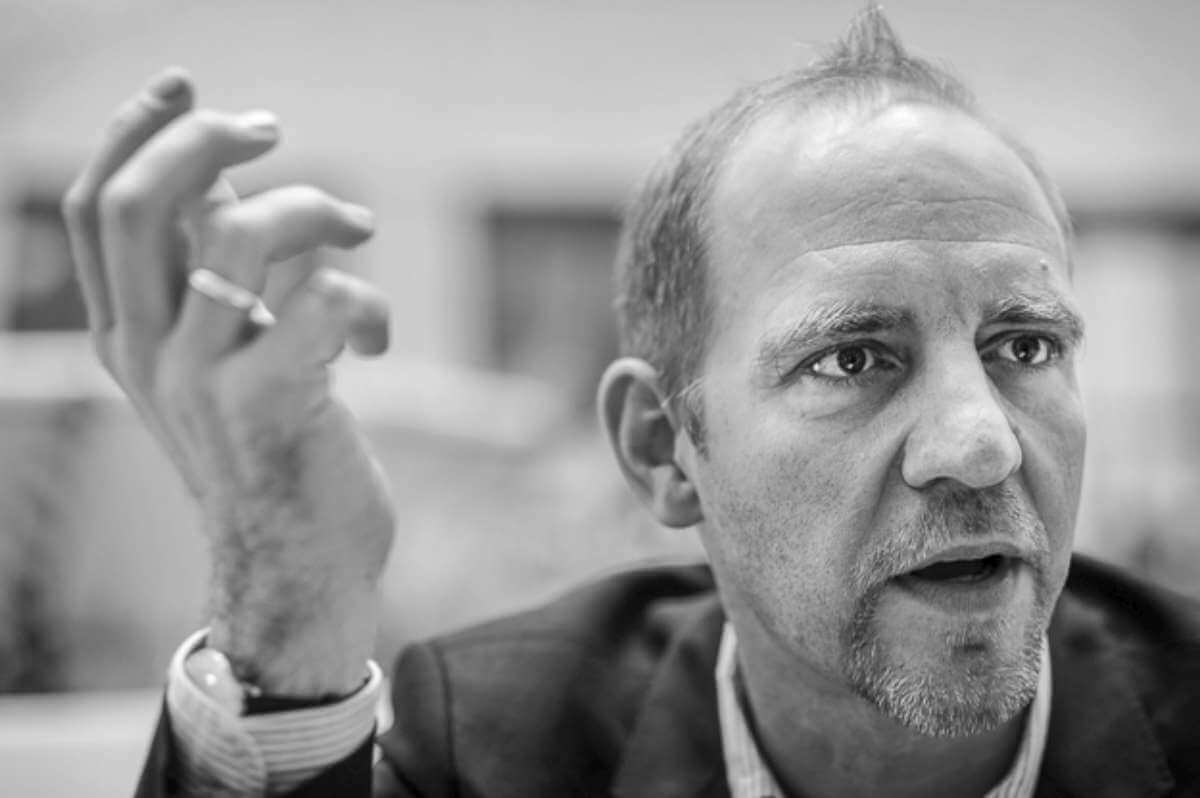
The same happened when the German Chancellor Angela Merkel received Aleksandar Vučić before elections [for president in Serbia in 2017], getting pictures with him that helps toward electoral success. That’s strategic support, which is highly problematic and it’s not based on the commitment to democracy but on his promise to solve the Kosovo dispute.
It’s the governments and the EU which have been uncritical, or not sufficiently pointing the finger at weakness of democracy in the region. And it’s not only the EU but also the United States.
In Kosovo for example, the intervention of U.S. ambassadors over the years when it comes to the elections of presidents, or government formation. I think that’s highly problematic, and in that sense I would say the EU should hold higher standards if they want these countries to become members. And to become members, you have to become a functioning democracy. The U.S. is a distant partner and obviously more pragmatic.
However, it has often been said that the EU has been looking more for “stabilocrats” and that the EU has not shown a firm commitment to dragging the Balkan countries into the EU. How would you comment on that?
First of all, the fact that the EU has used the term ‘state capture’ [in its enlargement strategy this year] is a new thing. It was first used in the case of Macedonia [in the country’s 2016 EU Progress Report]. That’s a breakthrough and it’s a very strong term which the EU did not dare to use earlier.
When the Macedonian crisis began, the EU was framing it as a dispute between the opposition and the government. I was very critical of that approach, basically accusing Commissioner [Johannes] Hahn of being kind of blind to the problem. That’s a problem of democracy and not of relation of government and the opposition. For me, this was fundamentally misunderstanding what this was about.
The term ‘stability over democracy’ has become quite widely used. But is it possible to have democracy without stability?
This is partly because ‘the government’ offers stability. I call it ‘fake stability’ because the best stability is offered by democracy, and by functional democracy, and not by a strongman. They offer short term stability and have to create crises to convince others that it’s stability that the people need.
I call it ‘fake stability’ because the best stability is offered by democracy, and not by a strongman.
There are lots of studies that show that unconsolidated democracies have certain elements of instability and fragility. But I think there are no shortcuts to stability through autocrats and I say that when I talk to some colleagues, who say: ‘We should support Vučić and [Montenegro’s President, Milo] Đukanović because they have the right political orientation, they are pro-Western and want to get into the EU.’
What is the value of simply declaring that you are pro-Western when in domestic politics you are using undemocratic means?
I think this is exactly the problem. You cannot have a shortcut to be pro-Western just by declaration. I think NATO membership for Montenegro was a good policy, and I would always argue that autocrats pursue policies that I would agree with. It doesn’t mean that all their policies are bad, and this is the weakness of oppositions in the region.
I would certainly argue that you cannot build functioning democracies with autocrats who are benevolent autocrats as it would seem [to be possible] by some outsiders.
The problem is that it also discredits reform and EU integration, because in places like Serbia, where there is [only] an imaginary alternative, people say, ‘If the EU supports autocrats, than as the democratic opposition we should look elsewhere.’ So, in a certain way, the EU creates the risk of having an opposition which is maybe originally reformist but feels alienated from the EU because it feels the EU is giving autocrats support. That’s a detrimental relationship.
Another problem that you alluded to earlier is that in recent years EU member states themselves have seen increased tendencies for less liberties, solidarity and shared values, like in Hungary, Poland and elsewhere. The issues of racial and national identity have just increased. What message does this bring to the Balkans?
The idea of liberal democracy has been shaken in the EU as a result of the illiberal tendencies that we see across Europe, or ‘illiberal democracies,’ which are an oxymoron. You can’t have an ‘illiberal democracy’ because it’s not a democracy anymore. What Hungary is doing is not democratic, even if it claims to be a majoritarian democracy.
It of course undermines the idea of the European Union externally to be a normative power and not just a geopolitical and economic union. That’s a problem. I am a committed European [but] only to a Europe which is based on liberal values — otherwise I couldn’t care less for the EU.
The EU has much more leverage over future member states than current member states. We see that with Poland and Hungary.
Do you think that, given the EU’s struggle with internal issues, it is over-fetishized by the leaders in the Balkans?
It’s true. The EU is often fetishized and [people have] false expectation about what membership brings. Like in Kosovo or Albania, where the rate of EU endorsement is over 90 percent. It’s completely crazy, because people expect a lot from the EU that will never happen.
When a country joins the EU, nothing changes from day to day. A lot of benefits come before joining and afterwards, but gradually. There is this very destructive obsession with dates in the region. When will we join? It’s a silly discussion.
When a country joins the EU, nothing changes from day to day.
First of all, any prediction is kind of like looking at astrology. It’s not about a date, but a substance. So, you know, if all the countries in the Western Balkans were members of the EU tomorrow, none of the lives of citizens would change dramatically. They would be worse, because first of all the economy is not prepared.
Despite the aspirations to join the EU, throughout the years politicians in the Western Balkans have frequently brought up the idea of ‘redrawing the borders.’ Do you think that if geopolitical circumstances were to change — and they have been shaken in recent years — there would be space for redrawing the borders?
I think the idea about this has come up every few years since the wars in the ’90s. I think some people have felt that kind of after Brexit, the election of Trump, the rise of Russia, it has made it more likely or possible today that the borders could possibly change. I mean, America has been a great protector of the peace order in the Balkans; the Dayton peace [in Bosnia and Herzegovina], Kosovo’s independence and also the peace in Macedonia were all guaranteed by America, and they were hoping that Trump, as a populist and far right politician, would be willing to reconsider it.
So far, I think there has been no sign of the U.S. administration — with all the problems I have with Trump — being willing to contemplate this. Mostly because the Balkans are not a priority and so luckily Trump hasn’t found them on the map.
The idea of exchanging borderers is poisonous because once you start opening the question of changing borders then of course it’s very easy to question all of the borders in the Western Balkans.
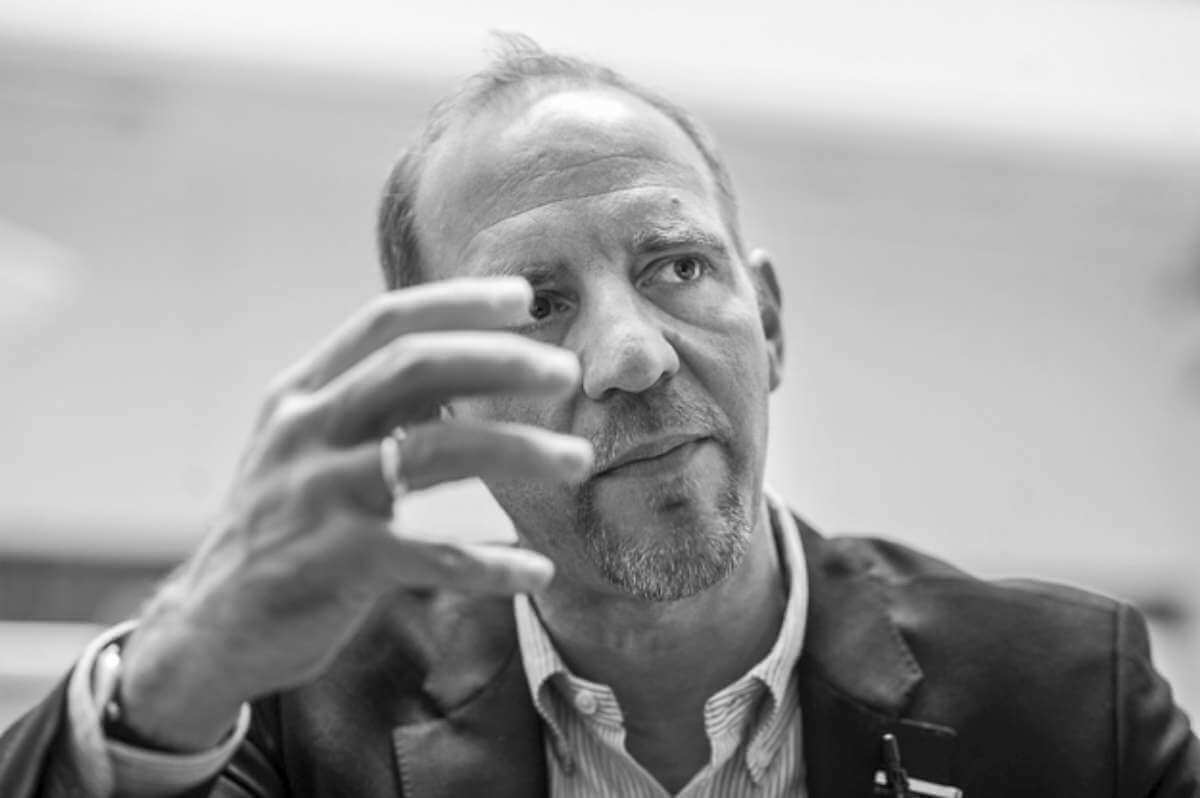
However, we have seen increased discussion of conflict in recent times and an increase in tensions between Kosovo and Serbia generally, despite years of EU-facilitated dialogue to ‘normalize’ relations and the 2013 Brussels Agreement signed between the two states. Do you think the EU has helped to normalize abnormality between Kosovo and Serbia?
I would say that first of all, if we look back at 2010, before the dialogue began, there have been a lot of improvements in many ways. You can now have many international forums when you have Serbia and Kosovo sitting together in regional forums. The ministers and prime minister meet regularly and that has a deescalating function.
However, it seems as though the meetings are not solving problems. After a meeting on a Friday between Kosovo’s President Hashim Thaçi and Serbia’s President Vučić, the next week you see the head of Serbia’s dialogue delegation, Marko Đuric, being arrested in a spectacular way by Kosovo Police. Shaking hands in front of cameras is not normalizing anything, is it?
Of course, there is a lot of show in all of this. Fake conflict.
Elements of the arrest, the train sent [toward Mitrovica from Belgrade with ‘Kosovo is Serbia’ written on it in in January 2017] and stopped, all these things are show and purely for domestic consumption. The reason why they do not escalate is because they are part of a performance.
The autocrats need to convince the domestic audience that they are good patriots and that’s why they need these shows. Also they need to create crises to resolve them. For external forces, autocrats want to show that stability is under threat. If stability is not under threat you have no function. You always have to convince the outsiders that there is a crisis looming. There is Russia looming, conspiracy, there is conflict, there are bad guys … to be able to increase the temperature in order to reduce it.
I think all of the sides know it’s not a real confrontation but it’s like rams that try to hit each other with their horns; they don’t try to injure each other — they just try to show off who is stronger and convince their domestic audience. This is, as you said, an abnormal normalization.
The next phase of the dialogue, according to the EU enlargement strategy, should include a “legal binding agreement” between Kosovo and Serbia. What do you imagine this will look like?
The agreement would ratify, or put down on paper, the things that have been discussed and agreed upon during the seven years of Brussels dialogue but which have never been put down on paper; or that have been vague and that have brought more conflict afterwards about what they mean and how to implement them.
I think it has to be on paper and a clear commitment, otherwise it will just create disputes, and we need to go beyond these continuous renegotiations about what was negotiated. It needs to have a mechanism where Kosovo will become a member not only of international organizations but to break this non-recognition element.
Do you think Serbia is ready for such a solution?
Serbia will have to be ready. From a very symbolic point of view, I think that Serbia cannot join the European Union otherwise. It might not have to recognize Kosovo but it has to do two things. It has to do everything short of recognizing Kosovo but recognizing its existence so in that sense it might not formally say, “Here, Serbia formally recognizes Kosovo,” but it has to do that in practice. It has to say there is a state of Kosovo, which is an independent state, and which we will work with as a partner.
It has to say there is a state of Kosovo, which is an independent state, and which we will work with as a partner.
The dialogue process, where it is envisaged that this legally binding agreement will be made, is said to be moving to the presidential level. But there are few signs of internal consensus in either Kosovo or Serbia. Do you think that democracy has been harmed by the international community putting pressure on making agreements that lack internal consensus?
If we think how difficult it was [for Kosovo] to ratify the border demarcation agreement with Montenegro — which for me is a joke in comparison to normalization with Serbia — I think it is going to be very difficult.
Also in Serbia. Vučić talks about internal dialogue but maybe he talks to himself and a few other people — that’s not democracy.
But in Serbia’s Progress Report published this week the EU welcomed Vučić’s initiative for internal dialogue. Do you think that the EU doesn’t know that Vučić is having a dialogue with himself?
I think it knows very well what’s going on. It’s a pragmatic decision, because they want a solution and they realized that the opposition is using the nationalist element more than Vučić. They [the EU] are maybe happy that Vučić is having the fake dialogue.
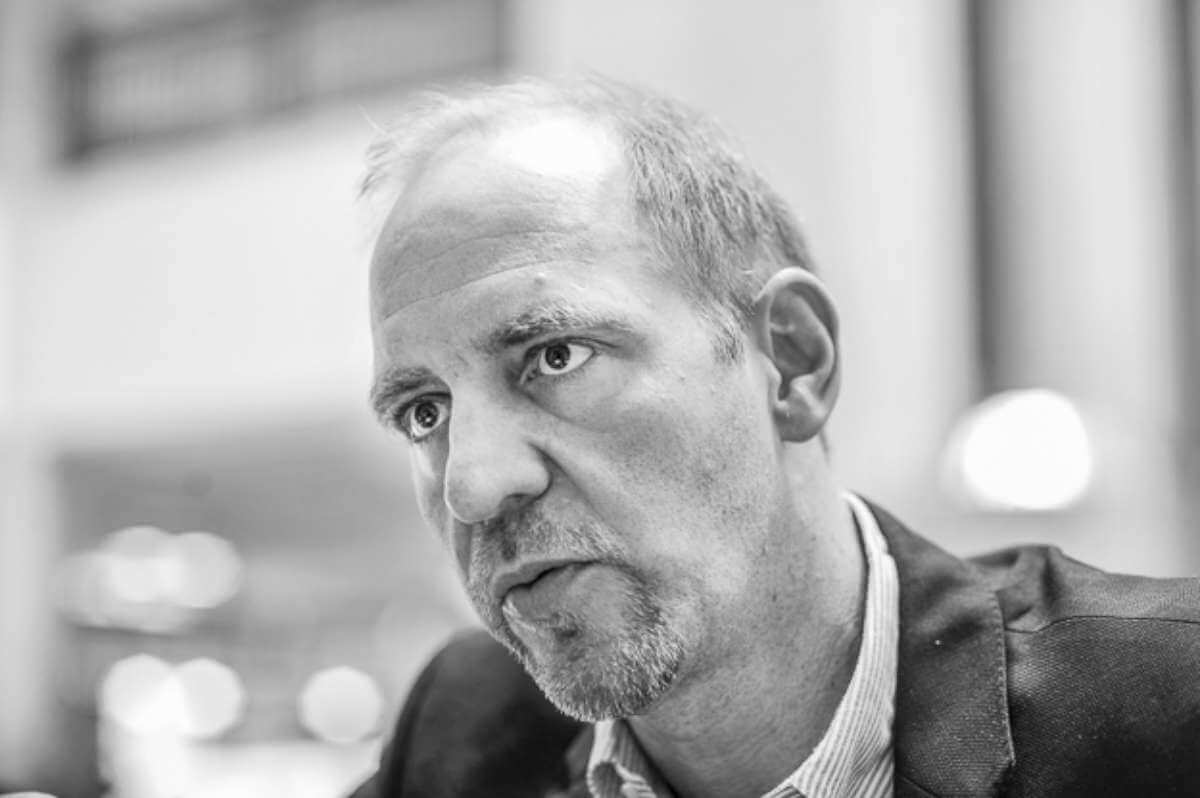
The agreement [between Kosovo and Serbia] might be illegitimate for both sides. It might be possible that Vučić can push it through because he has no opposition and in Kosovo it might literally fail in parliament or elsewhere. The risk of course is helping [to ensure] that Vučić will look like the good guy, because he will look like the guy who can deliver, while the Kosovo guys — [Prime Minister, Ramush] Haradinaj or Thaçi — cannot deliver.
Vučić does seem to be Brussels’ favorite in the region, despite EU institutions continuously highlighting a decline of democracy in Serbia and ‘capture of the state.’ How do you think the EU should respond to the rise of ‘autocratic democracies’?
I’ve had diplomats from the EU telling me: ‘Vučić convinced me that he is really our guy and what he says about [Serbia getting closer to] Russia is just about his domestic sensitivity.’ I mean, he controls the public agenda so carefully that he can say whatever he wants for the domestic audience because he controls it. But he uses it to play the West [in the sense of], ‘If you don’t support me then there are always other guys waiting for us.’
You’re talking here about external forces acting in the region. How do you see this influence more generally?
For instance in Kosovo, no one is going to believe that, for Kosovar Albanians, Russia is a great savior. That’s such a stretch by any imagination. But if there had been [the option of Kosovo enhancing its bargaining position by using the idea of fostering closer relations with] another actor like Turkey…
We saw it with, whether you call it the extradition, kidnapping or deportation of Turkish citizens [in March]. It shows that governments are quite pragmatic in using, or working with, outside powers in rather problematic ways. It’s hard to talk about [the deportation to Turkey from Kosovo of the six Turkish citizens] as it’s not clear how it arose and who is behind it, and this intransparency because it shows institutions not operating. Turkey is another of the main actors in the region, outside the EU and U.S..
If you send 20 bikers or whatever to do a tour in the Balkans and it makes headline news, that’s a very cheap strategy. And how much does it cost to send a few Night Wolves? [In March, Russia sent a notorious biker gang to Serbia and Republika Srpska in Bosnia and Herzegovina, a trip that the bikers claimed was about ‘connecting cultures.’] I don’t like them because they are clearly, thugs, extremists and nationalists and I have no sympathy for them. We should certainly be careful with them and we should not underestimate them, but also we should not be hysterical. If we talk too much of war and crises it creates an acceptance that this might be coming.
I think Russia is investing very little and getting a lot in return. But this shows the weaknesses of the EU. The EU is the biggest investor and donor. Even in Serbia, people talk of Russia, but nobody wants to live in Russia except if you are [businessman and politician] Bogoljub Karić or some rich guy, but otherwise nobody wants to go there.
I think Russia is investing very little and getting a lot in return.
Another country where Russia is seen to have an influence, particularly through opposition politics, is in Montenegro. Last Sunday, Milo Đukanović was elected for the third term as president of Montenegro. Do you think Đukanović resembles one of the ‘Balkan princes’ that you wrote about in 2015?
He is the ideal type. His party has no ideology. If you look at the program of the DPS [Democratic Party of Socialists of Montenegro], you know, it stands for everything. Progress, social justice, Montenegrin identity. So it has Montenegrin nationalism, it’s also European, it’s also social democratic. In that sense it covers everything and it’s a catch-all.
And Đukanović is what I was talking about in terms of pragmatism. He started as a Serb nationalist and he became a Montenegrin state-builder, and he has been smarter than most of the politicians in the region [who have] not been able to evolve. His evolution has kept him in power. If he had been with Milošević he would be history by now. If he had been only a pro-American, as he was initially, he also would not have survived. So, he became pro-European and EU. He has been the ultimate pragmatist, because his ultimate goal was to stay influential and powerful.
We have also seen this pragmatism in Bosnia and Herzegovina, and in Kosovo. Constitutionally — pushed by the international community — both are multi-ethnic states, whereas other countries are often based on the idea of nation states. As someone who has lectured on ethnicity, how do you see Bosnia and Kosovo as multi-ethnic states?
Let me just get back to Montenegro once more. I have been critical of Đukanović and his rule, but one of the elements is that they have been very careful. They have been pragmatic by keeping minorities included in the system. Mostly, or exactly, to win a majority — because without a majority, without minorities, his rule would have been much weaker.
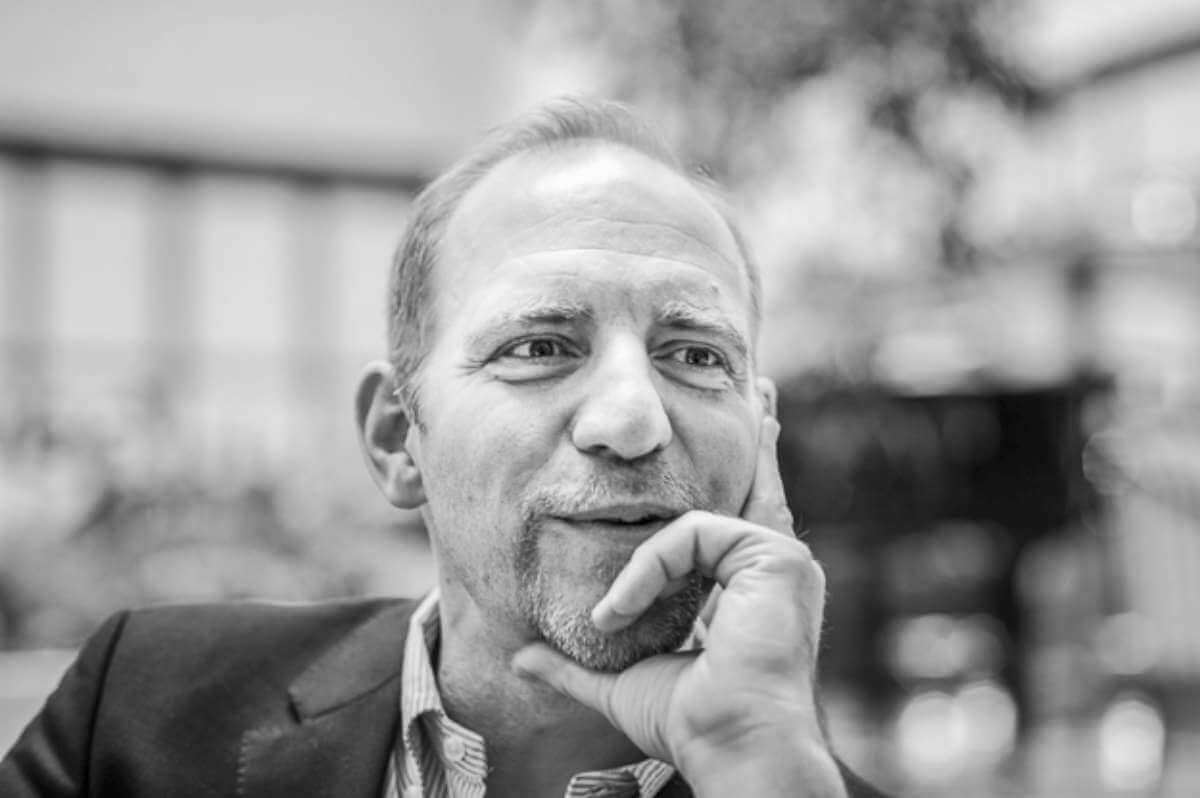
In terms of population and the size of its minority population, Montenegro is more multi-ethnic than Kosovo; the state is not an explicit nation state and it is more open in many ways. And of course, that was never possible in places like Bosnia because of the war. I mean it’s not the EU or outsiders that pushed the country to be the way it is organized.
You do not think that others pushed countries like Bosnia and Kosovo to be organized in the way that they are?
I mean they have pushed it, but that’s the result of the war. The war divided the country. The fact that the Dayton Peace Accord institutionalized ethnicity was of course part of external negotiations, but, you know, either the war would have continued or there would have had to have been an invasion, and nobody was willing to do that. In that sense, it is also the result of the war.
This is a problem more in Bosnia than in Kosovo. The degree to which there is an emphasis on ethnicity … in the Constitution and the link to territory has … made it very difficult to move beyond that.
But even in the aftermath of the wars, Bosnia and Kosovo were two states where particularly the EU but also the U.S. have invested the most. Logically, these two countries should have seen more progress. However, in the EU integration process, these two countries have seen the least amount of progress along the EU path. How would you comment on that?
When it comes to Kosovo, the biggest problem is the lack of full external recognition, which makes it difficult for Kosovo to move forward to the EU.
Nobody at Dayton thought that with this framework Bosnia could join the EU.
And for Bosnia, it is the internal contestation for the country where everything is blocked at each step of the way. I think that this came along as a problem because when the peace process began there was no thinking about how Bosnia would look as an EU member state. People were thinking then of stabilizing, and nobody at Dayton thought that with this framework Bosnia could join the EU. They thought there would definitely be something else that would be negotiated in between, but it never happened.
And the same for Kosovo. I am sure that when the status talks began, and when [Martti] Ahtisaari was drafting his proposal [for the final settlement status of Kosovo] nobody thought 12 or 13 years later that the Kosovo state would be contested. Maybe by Serbia, but nobody else. So the assumption was, this question will be resolved.
So, both countries are unfinished investments. The lack of recognition by the five EU member states was a structural failure and makes it very difficult for Kosovo to move forward to the European Union.
Do you believe that there is space for a successful civil state in this part of the world?
Of course there is because, as I said, Montenegro has elements of that. A high emphasis on ethnicity might be necessary at the end of the war, because of the polarization, but it doesn’t mean it has to stay like that. The question is: How do you de-escalate the importance of ethnicity over time?
That’s a good question, but is it happening?
No, it’s not happening. I think it can happen in Macedonia, because there we have a de-escalation where for the first time we saw in a protest against the [Nikola] Gruevski government [in 2015] Albanians and Macedonians, and this was a change where people were cooperating politically across ethnic lines in the same direction. It was also easier, because you had those crises and so it was one clear target.
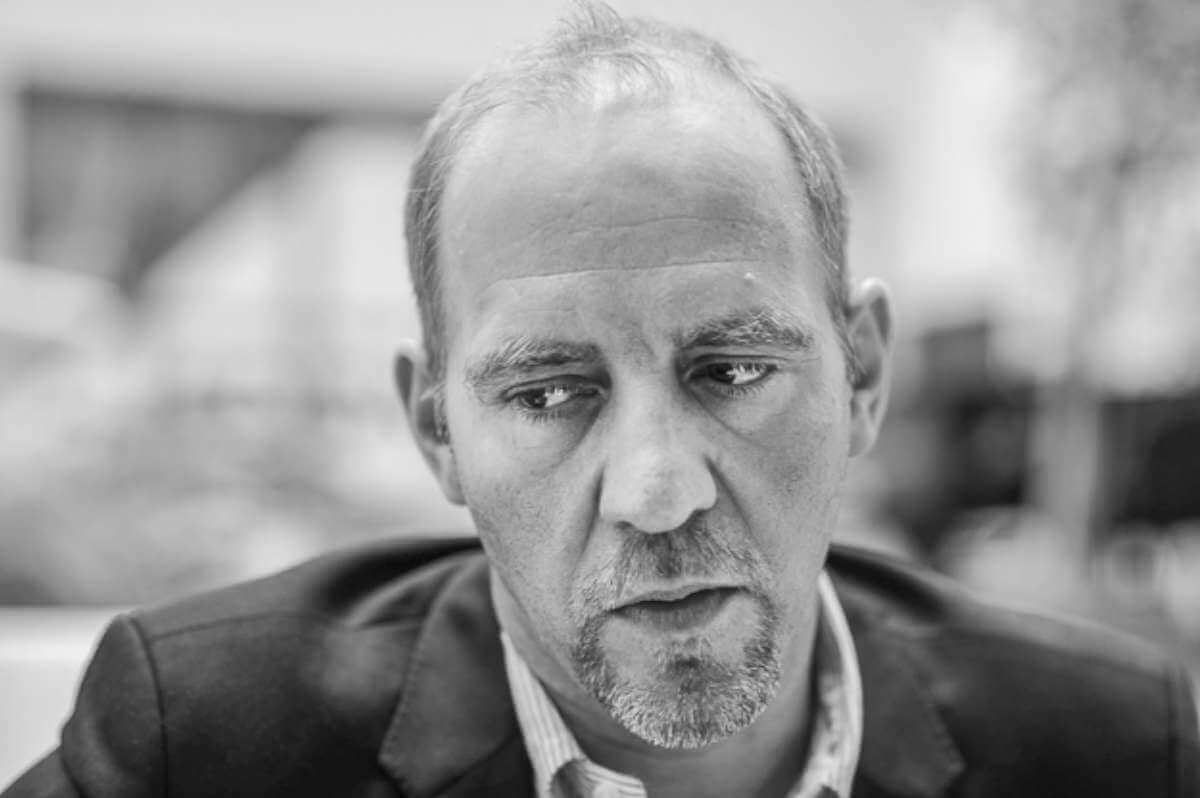
The problem in places like Bosnia is that the autocrats are from three different parties. Serbs who are against [president of Republika Srpska, Milorad] Dodik are against Dodik. Bosniaks are not against Dodik but they are against their own autocrat, [Bosniak tripartite presidency member] Bakir Izetbegović. And the Croats might be against HDZ [the Croatian Democratic Union of Bosnia and Herzegovina]. So each of them is on their own, and it’s very hard to cooperate.
I think social movements like the one in Macedonia should make the people come together and realize that we have common problems, and I think it’s the only way to happen. It will not happen through institutions, but it happens first through citizens, when they have shared policial projects and ideas. That will then push for political change and it won’t come the other way around.
How do you picture the Balkans in 10 years?
There is no clear answer. In an optimistic scenario — which I don’t say is impossible but it would require things to change, which is unlikely — let’s say, four countries of the Western Balkans are EU members: Macedonia, Albania, Serbia and Montenegro. That’s possible but it means that the governments of at least two of these countries would have to change dramatically, which I do not think is likely.
I’m talking of Serbia and of Montenegro, where I don’t think the governments or the presidents are able to become EU members as politicians. There is going to be resistance within the EU, a worry that the EU would be importing [Hungary’s President, Viktor] Orbán or [leader of Poland’s governing Law and Justice Party, Jarosław Aleksander] Kaczyński. And you need effort by the governments, which I do not yet see that there is a willingness to do. It needs dramatic shifts, like in Macedonia. I think Macedonia’s government is committed to European standards and no matter the mistakes, it can catch up.
A more realistic scenario is that all the countries are closer [to EU membership] but none of them is in.
An optimistic scenario would mean that Bosnia and Kosovo might not join [the EU] but might be much further ahead and have all their structural problems resolved.
A more realistic scenario is that all the countries are closer [to EU membership] but none of them is in. Or maybe Montenegro, but nobody will notice that.
Hopefully the democratic crisis in the region will be overcome, because it’s connected with the larger EU dynamic. If we think of these problems of democracy and autocracy as being cyclical … just like 20 years ago [when] we believed it would get better with democracy, I dont think it’s equally wrong to believe that it’s going to get worse. I think that if the European dynamic goes toward improving democracy, it will impact the Balkans.
And the pessimistic scenario would be that the decline of democracy goes further. [In this scenario] countries are moving away from democracy and we are seeing local thugs and more dramatic shows.
***
![Political Critique [DISCONTINUED]](https://politicalcritique.org/wp-content/uploads/2015/09/Political-Critique-LOGO.png)
![Political Critique [DISCONTINUED]](https://politicalcritique.org/wp-content/uploads/2015/09/Political-Critique-LOGO-2.png)